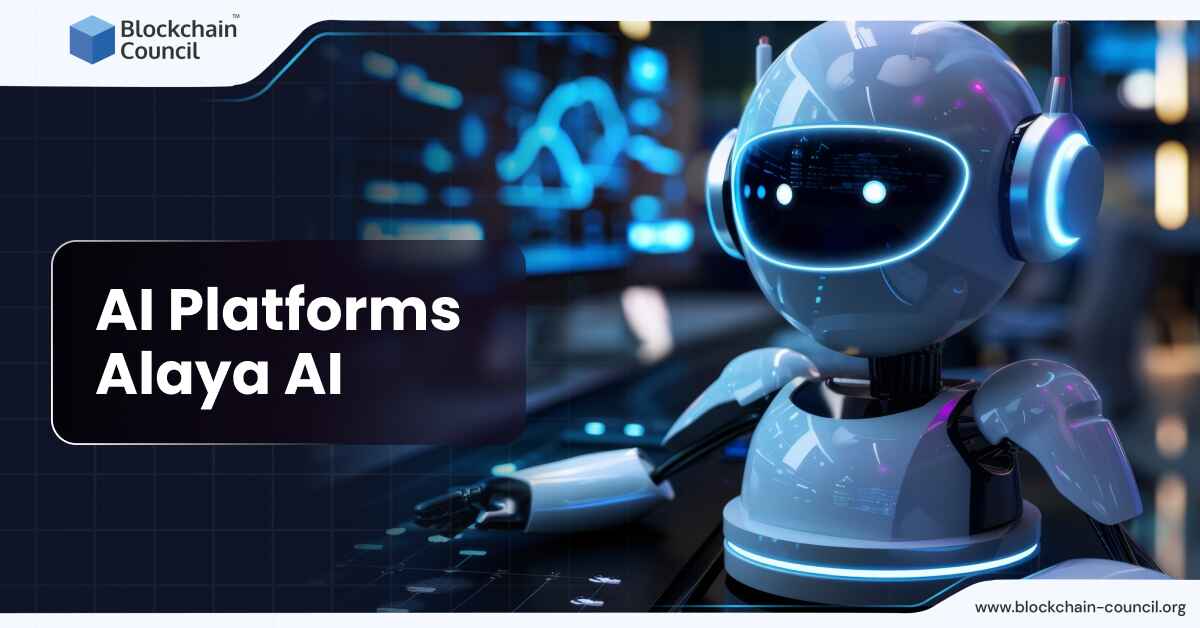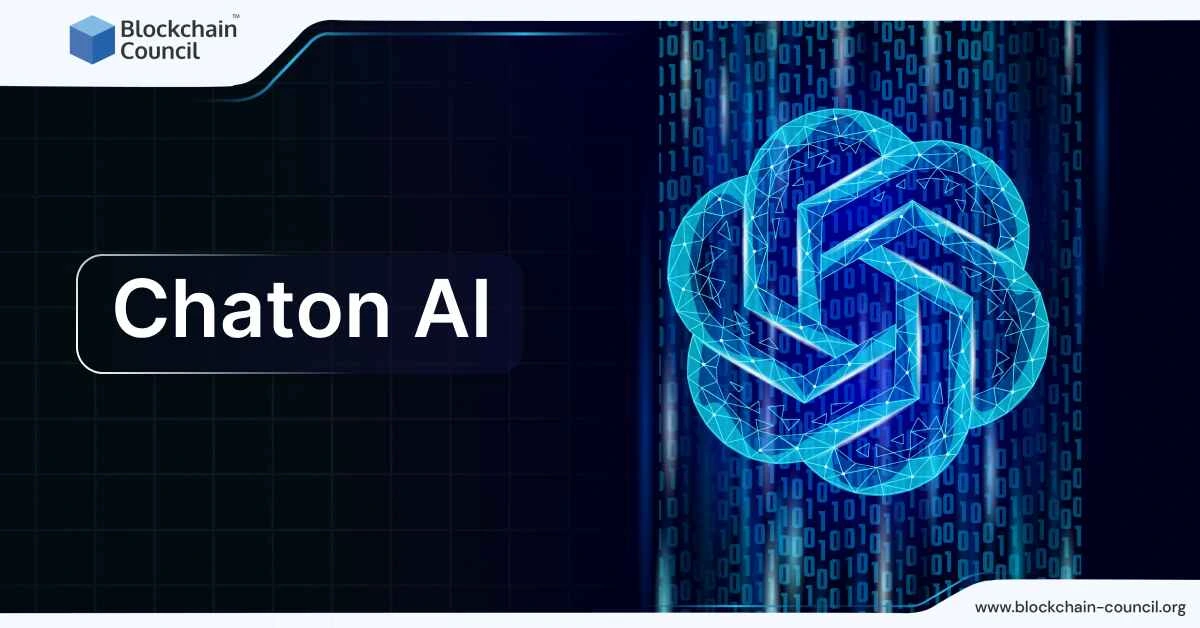
- Blockchain Council
- September 25, 2024
What Is the AI Platform Alaya AI?
Alaya AI is a distributed AI data platform that helps in collecting, managing, and labeling data for AI projects. It operates on a decentralized network using Blockchain technology, ensuring data security, transparency, and integrity. Alaya AI connects AI developers with data contributors, making it easier to gather high-quality, scalable data for various AI applications. The platform is designed to be open and adaptable, allowing for custom data requests and incorporating innovative methods like NFTs for incentives. It also uses a game-like environment to incentivize user participation, offering rewards for their contributions.
Also Read: AI Tools Alaya AI
How Does Alaya AI Work?
Alaya AI operates on a distributed platform, which makes it highly scalable and effective in managing large volumes of data. This setup allows for parallel data collection and labeling by a wide community of users, which is further incentivized through a unique NFT-based reward system.
The platform is divided into several layers that enhance its functionality:
- Interaction Layer: This is where users interact with the platform, contributing data and participating in AI training through a gamified interface that’s accessible both via a web app and a mobile app.
- Optimisation Layer: Here, data is automatically processed and optimized for quality. This layer employs sophisticated algorithms to ensure efficient and reliable data sampling.
- Intelligent Modelling Layer: This layer focuses on automating the data labeling process using AI, which reduces costs and boosts efficiency. It supports dynamic labeling adjustments through community feedback and evolves continuously to meet the needs of modern AI training demands.
Together, these layers make Alaya AI a powerful tool for collecting, labeling, and using data to train AI models. Here’s how:
Crowdsourcing: It takes help from a large network of contributors to collect and label diverse datasets, including text, images, audio, and video.
Data Screening: The platform screens input data for accuracy using a combination of human review and automated checks. This ensures that the data used for training AI models is of high quality.
Gamification and Incentives: Users participate in tasks and quizzes to earn rewards, including NFTs. This system motivates participants to contribute effectively and maintain high standards.
Decentralized Network: Utilizing Blockchain technology, Alaya AI records all data-related activities on a decentralized ledger, ensuring security and transparency. This also prevents data centralization, making the platform robust against data breaches.
Community Engagement: Alaya AI fosters a collaborative environment where users can share datasets, insights, and contribute to the platform’s evolution. This community-driven approach helps in continuously improving the quality and variety of the datasets available.
Can I Access Niche or Specialized Datasets on Alaya AI?
Yes, Alaya AI allows access to niche or specialized datasets. Users can request specific data by submitting requests for data (RFDs) through the platform’s portal. This includes specifying the category, volume, budget, labeling scheme, and other requirements. The platform then connects these requests with a global pool of data providers who can offer customized, clean data tailored to the needs of the requesters. This process ensures that even highly specialized datasets are available for various AI projects.
Also Read: Alaya AI Careers
What Types of Data Can Alaya AI Handle?
Alaya AI can handle a wide range of data types. This includes text, images, videos, and audio files. The platform supports multi-modal datasets, which combine different types of data to provide richer context and improve machine learning models. Users can annotate and label data, making it organized and accessible for others. The platform’s Blockchain technology also ensures that all data interactions are secure and transparent.
How Does Alaya AI Ensure Data Quality?
Alaya AI ensures high data quality by combining advanced technology with human oversight. Here’s how:
- Human-in-the-Loop Checks: Alaya AI employs human reviewers to inspect and verify the labeled data, ensuring that the data is accurate and reliable.
- Machine Learning Algorithms: These algorithms automatically identify and correct errors in the data. They continuously learn and improve from the data they process, enhancing the accuracy over time.
- Gamification: The platform uses game-like features to engage users in data labeling tasks. By offering rewards and incentives, it encourages high-quality contributions from a diverse pool of participants.
- Blockchain Technology: Alaya AI integrates Blockchain to maintain data integrity and security. This decentralized approach ensures that data transactions are transparent and tamper-proof, adding an extra layer of trust and reliability.
- Comprehensive Quality Control: From data collection to annotation, Alaya AI implements rigorous quality control measures. This includes active learning, annotation templates, and collaboration tools to streamline and enhance the labeling process.
Also Read: Alaya AI Stock
Is There a Cost Associated with Accessing Datasets on Alaya AI?
Yes, accessing datasets on Alaya AI involves costs, which vary based on the plan chosen. There are three pricing tiers:
- Basic Plan: Free of cost but with limited features, suitable for beginners.
- Standard Plan: Mid-tier pricing for regular users who need more comprehensive tools.
- Premium Plan: Higher cost for professional users requiring full features and high-level service.
Cost of Alaya AI
The cost of using Alaya AI can vary depending on the specific services and datasets you require. The platform operates on a token-based economy, where users can earn or purchase tokens to access premium content. This pricing model allows flexibility, catering to both individual researchers and large organizations.


































































 Guides
Guides News
News Blockchain
Blockchain Cryptocurrency
& Digital Assets
Cryptocurrency
& Digital Assets Web3
Web3 Metaverse & NFTs
Metaverse & NFTs
